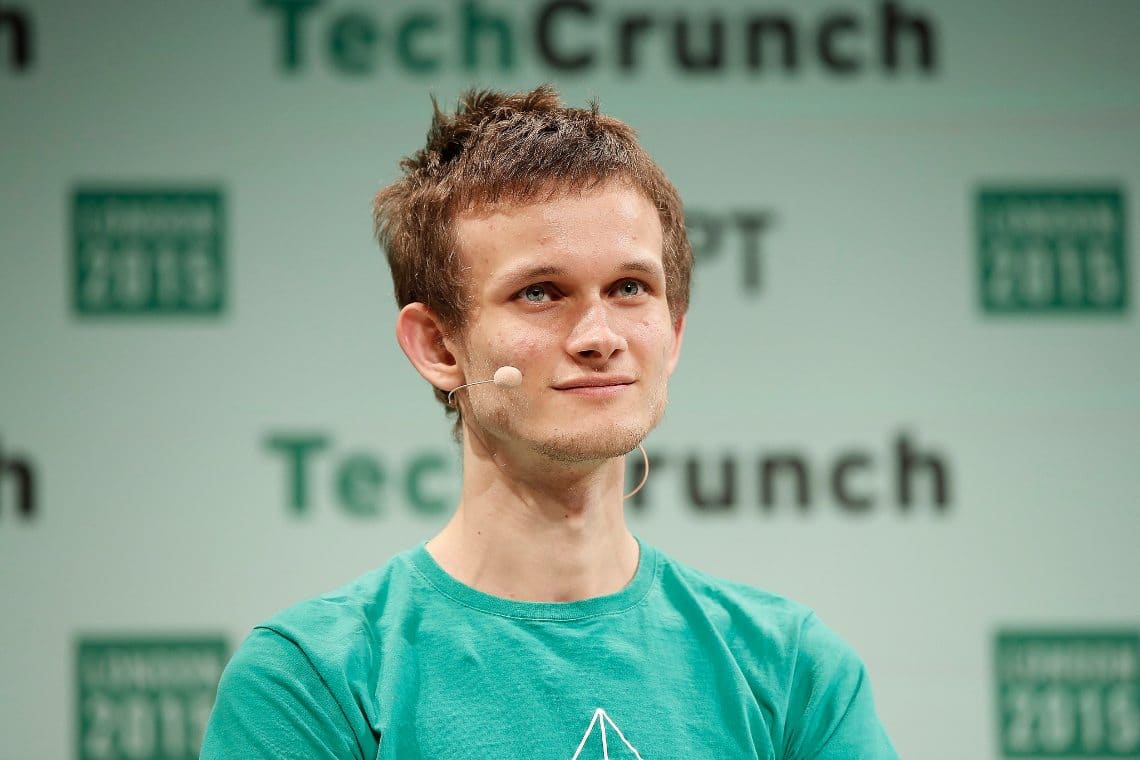Vitalik Buterin, co-founder of Ethereum and one of the most influential figures in the world of cryptocurrencies, continues to emphasize the importance of decentralization and collaboration within the Ethereum ecosystem.
With the growing success of blockchain and the continuous evolution of the sector, Buterin highlights the fundamental challenges that Ethereum must face to maintain its original spirit, ensuring that decentralization is not lost and that collaboration among developers remains strong.
Vitalik Buterin’s vision for Ethereum: decentralization as the central pivot
From the beginning, Vitalik Buterin envisioned Ethereum as a decentralized platform that went beyond the simple purpose of a cryptocurrency.
Ethereum was designed to be a global infrastructure, capable of supporting decentralized applications (dApp), smart contracts, and solutions for a wide range of sectors, from decentralized finance (DeFi) to supply chain management.
According to Buterin, the success of Ethereum depends on its community of developers and their ability to collaborate on innovative projects that promote the ecosystem. “The fundamental challenge is to ensure that all projects build something that resembles a single Ethereum ecosystem,” he has stated on several occasions.
His vision is not only about technological growth, but also about creating a harmonious environment where decentralization and collaboration can coexist without compromises.
Decentralization is one of the pillars on which Ethereum is based. For Buterin, it is essential that the ecosystem remains decentralized to ensure the security, transparency, and resilience of the network. However, this principle entails complex challenges. The explosive growth of Ethereum has led to the emergence of numerous projects and protocols, each with its own objectives and solutions. This can create fragmentation within the ecosystem.
Buterin has often emphasized the importance of maintaining the balance between innovation and decentralization. On one hand, blockchain technology must evolve to meet growing demands, but on the other hand, care must be taken not to compromise the fundamental principles on which the ecosystem is based. Ethereum, in Buterin’s vision, must continue to be a public infrastructure, where no single group or individual can have control.
Collaboration: the key to Ethereum’s success
Another central theme in Vitalik Buterin’s philosophy is collaboration. Ethereum has one of the most active and dynamic developer communities in the world of cryptocurrencies.
This is a crucial element for the success of the platform. “The Ethereum ecosystem is strengthened thanks to the collaboration between developers, researchers, and the community,” said Buterin.
But maintaining a high level of collaboration is not easy. With hundreds of different projects emerging within the ecosystem, there is always the risk that some of them may diverge too much from Ethereum’s common goal.
Buterin acknowledges that one of the main challenges is ensuring that these projects work harmoniously, all contributing to a cohesive Ethereum ecosystem.
For this reason, Buterin has insisted on the importance of clear guidelines and a spirit of cooperation among the different actors in the sector. The strength of Ethereum lies in its ability to bring together brilliant minds from all over the world to work on common goals, while maintaining a decentralized infrastructure.
The technological evolution is essential for the growth of Ethereum, but it involves challenges that cannot be ignored. One of the main issues is how to balance innovation with decentralization.
With the Ethereum 2.0 update and the transition to Proof of Stake (PoS) consensus, the network has made significant strides in terms of scalability, sustainability, and security. However, Buterin is aware that these changes must be accompanied by a constant commitment to maintaining decentralization.
The risk, according to Buterin, is that the ecosystem could become too fragmented, with projects taking different directions and not contributing to the unified vision of Ethereum.
This could lead to a “balkanization” of the ecosystem, where different networks or blockchain solutions compete with each other instead of collaborating. To avoid this, Buterin has invited developers to maintain a long-term perspective, working together to create solutions that improve the Ethereum ecosystem as a whole.
Ethereum as a unified ecosystem
To ensure that Ethereum continues to be a unified and decentralized ecosystem, Buterin believes that a constant commitment from the community is necessary.
The collaboration between developers, researchers, and users is essential to tackle future challenges. Furthermore, it is crucial that the actors within the ecosystem adopt a flexible and collaborative approach, setting aside rivalries and working for the common good.
In a world where blockchain technology is rapidly evolving, Vitalik Buterin remains one of the main advocates of the idea that Ethereum must evolve without losing sight of its founding values: decentralization and collaboration.
Only in this way, he argues, Ethereum will be able to continue to grow, maintaining its role as a leader in the cryptocurrency and decentralized applications industry.
Vitalik Buterin has a clear vision for the future of Ethereum: to evolve while maintaining decentralization and promoting collaboration. The challenges are manifold, but with the right approach, Ethereum can continue to grow as a unified ecosystem, where innovation and decentralization go hand in hand.
With a community of developers strongly committed and a visionary leader like Buterin, Ethereum has the potential to remain a dominant force in the world of blockchain.























